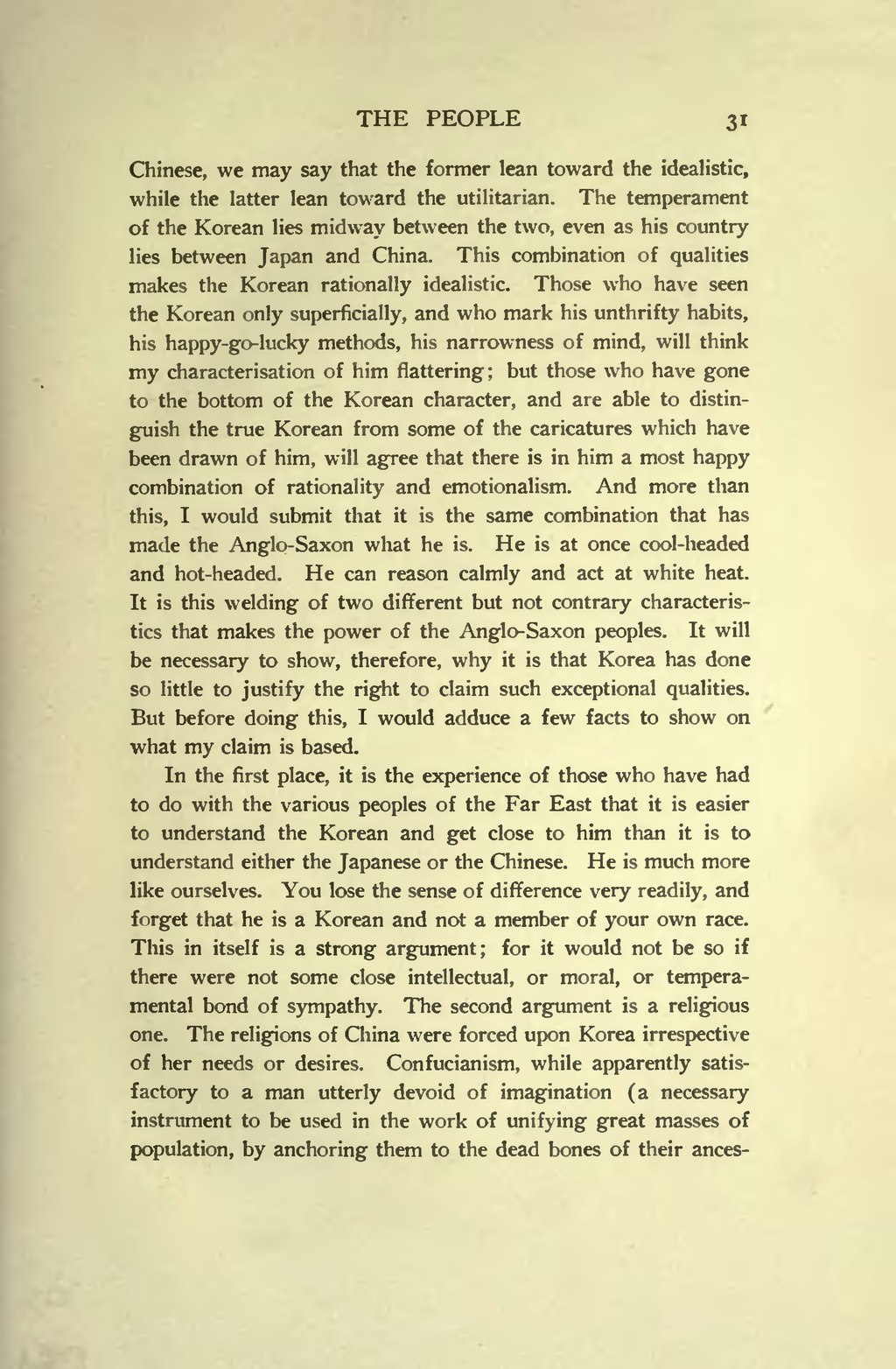Chinese, we may say that the former lean toward the idealistic, while the latter lean toward the utilitarian. The temperament of the Korean lies midway between the two, even as his country lies between Japan and China. This combination of qualities makes the Korean rationally idealistic. Those who have seen the Korean only superficially, and who mark his unthrifty habits, his happy-go-lucky methods, his narrowness of mind, will think my characterisation of him flattering; but those who have gone to the bottom of the Korean character, and are able to distinguish the true Korean from some of the caricatures which have been drawn of him, will agree that there is in him a most happy combination of rationality and emotionalism. And more than this, I would submit that it is the same combination that has made the Anglo-Saxon what he is. He is at once cool-headed and hot-headed. He can reason calmly and act at white heat. It is this welding of two different but not contrary characteristics that makes the power of the Anglo-Saxon peoples. It will be necessary to show, therefore, why it is that Korea has done so little to justify the right to claim such exceptional qualities. But before doing this, I would adduce a few facts to show on what my claim is based.
In the first place, it is the experience of those who have had to do with the various peoples of the Far East that it is easier to understand the Korean and get close to him than it is to understand either the Japanese or the Chinese. He is much more like ourselves. You lose the sense of difference very readily, and forget that he is a Korean and not a member of your own race. This in itself is a strong argument; for it would not be so if there were not some close intellectual, or moral, or temperamental bond of sympathy. The second argument is a religious one. The religions of China were forced upon Korea irrespective of her needs or desires. Confucianism, while apparently satisfactory to a man utterly devoid of imagination (a necessary instrument to be used in the work of unifying great masses of population, by anchoring them to the dead bones of their ances-

